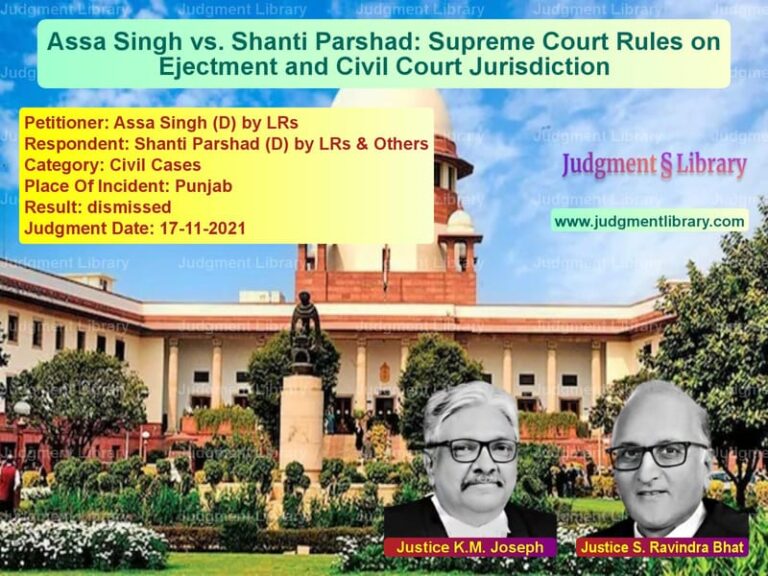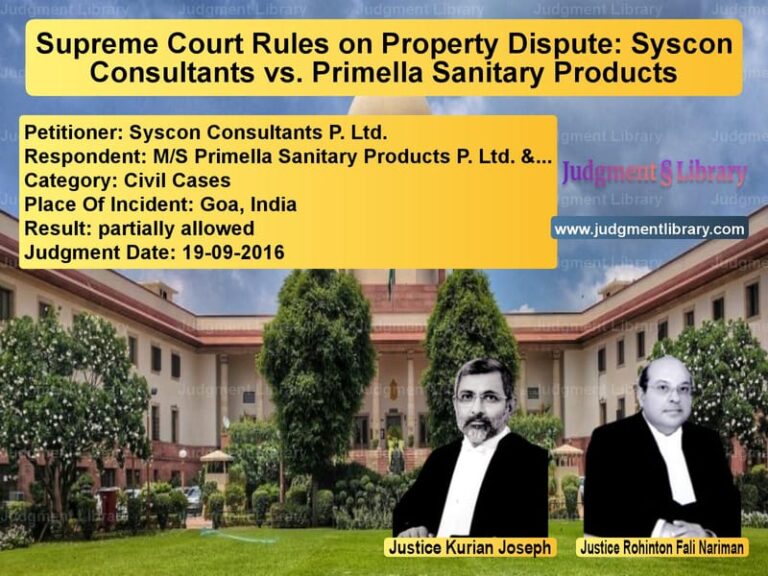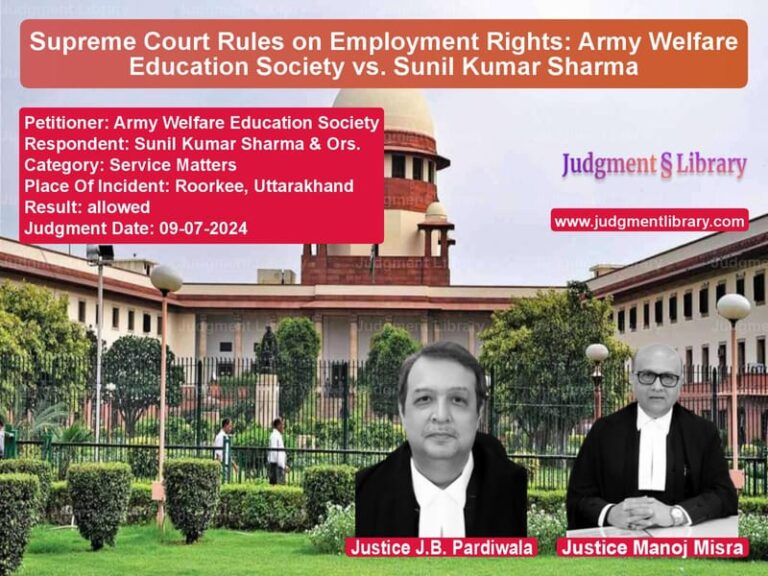Quashing of FIR in Abetment to Suicide Cases: Supreme Court’s Landmark Ruling
The Supreme Court of India recently ruled in the case of Daxaben vs. The State of Gujarat & Ors., addressing the quashing of an FIR under Section 306 IPC (Abetment to Suicide). This case involved a dispute over the legality of a High Court order that quashed a criminal complaint based on a monetary settlement between the accused and the informant.
Background of the Case
The appellant, Daxaben, is the wife of late Shaileshkumar Chimanbhai Patel, who died by suicide on March 1, 2020, after allegedly consuming poison at his office. Following his death, an FIR was filed under Section 306 IPC against 12 accused individuals, including businessmen and government officials. The complainant, a cousin of the deceased, alleged that the accused had financially cheated Shaileshkumar, leading to his extreme step.
The High Court of Gujarat, however, quashed the FIR based on a settlement between the accused and the complainant. The appellant, being the deceased’s wife, challenged this order before the Supreme Court, arguing that the High Court had failed to consider her legal rights in the matter.
Petitioner’s Arguments (Daxaben)
The appellant, through legal counsel, contended:
- The High Court erred in quashing the FIR without hearing the deceased’s wife, who had a stronger interest in prosecuting the case than a distant relative.
- The accused had allegedly defrauded the deceased of Rs. 2.35 crores, causing severe financial distress that led to his suicide.
- Suicide note and phone call records established a clear case of abetment.
- Section 306 IPC is a serious, non-compoundable offence that cannot be settled through private agreements.
- The High Court exceeded its jurisdiction under Section 482 CrPC by quashing the complaint without assessing its legal merits.
Respondent’s Arguments (The Accused)
The accused countered:
- The dispute was primarily financial in nature and had been resolved through a private settlement.
- The complainant, being the informant, had accepted the settlement, making further prosecution unnecessary.
- The suicide note did not directly attribute the accused’s actions as the sole reason for the deceased’s suicide.
- The High Court had acted within its powers to quash the FIR as per previous rulings favoring dispute resolution.
Supreme Court’s Observations
The Supreme Court scrutinized the legal principles governing the quashing of criminal complaints under Section 482 CrPC. Key observations included:
- Abetment of suicide is a grave offence against society and cannot be settled privately.
- The wife of the deceased had a legitimate right to be heard, and her exclusion was legally unjustified.
- The High Court had misused its discretionary powers by allowing a financial settlement to override serious criminal allegations.
- Serious offences such as abetment to suicide, murder, and rape should not be quashed on the ground of compromise.
Key Legal Precedents Considered
The Supreme Court referred to multiple landmark rulings, including:
- Gian Singh v. State of Punjab (2012): Held that serious offences affecting societal interest should not be quashed through private settlements.
- State of Madhya Pradesh v. Laxmi Narayan (2019): Differentiated between private disputes and crimes with public impact.
- State of Maharashtra v. Vikram Anantrai Doshi (2014): Declared that economic offences require strict scrutiny and cannot be quashed merely on settlement.
- CBI v. Maninder Singh (2016): Held that cases affecting the financial system should not be settled to avoid a dangerous precedent.
Final Judgment
The Supreme Court set aside the High Court’s decision and ruled:
- The FIR under Section 306 IPC should not have been quashed.
- Settlements cannot override criminal prosecution in grave and non-compoundable offences.
- The case must be reinvestigated, allowing the wife of the deceased to participate in legal proceedings.
Implications of the Ruling
This ruling sets a crucial precedent in criminal jurisprudence:
- Courts must ensure victims and close family members are heard before quashing serious criminal complaints.
- Abetment to suicide is a serious crime, and financial settlements cannot absolve accused persons.
- High Courts must use their powers cautiously and in line with public interest.
This decision strengthens victim rights in criminal cases and prevents the misuse of financial settlements to escape criminal liability.
Petitioner Name: Daxaben.Respondent Name: The State of Gujarat & Ors..Judgment By: Justice Indira Banerjee, Justice V. Ramasubramanian.Place Of Incident: Himmatnagar, Gujarat.Judgment Date: 28-07-2022.
Don’t miss out on the full details! Download the complete judgment in PDF format below and gain valuable insights instantly!
Download Judgment: daxaben-vs-the-state-of-gujarat-supreme-court-of-india-judgment-dated-28-07-2022.pdf
Directly Download Judgment: Directly download this Judgment
See all petitions in Suicide Cases
See all petitions in SC/ST Act Case
See all petitions in Custodial Deaths and Police Misconduct
See all petitions in Judgment by Indira Banerjee
See all petitions in Judgment by V. Ramasubramanian
See all petitions in allowed
See all petitions in Quashed
See all petitions in supreme court of India judgments July 2022
See all petitions in 2022 judgments
See all posts in Criminal Cases Category
See all allowed petitions in Criminal Cases Category
See all Dismissed petitions in Criminal Cases Category
See all partially allowed petitions in Criminal Cases Category







